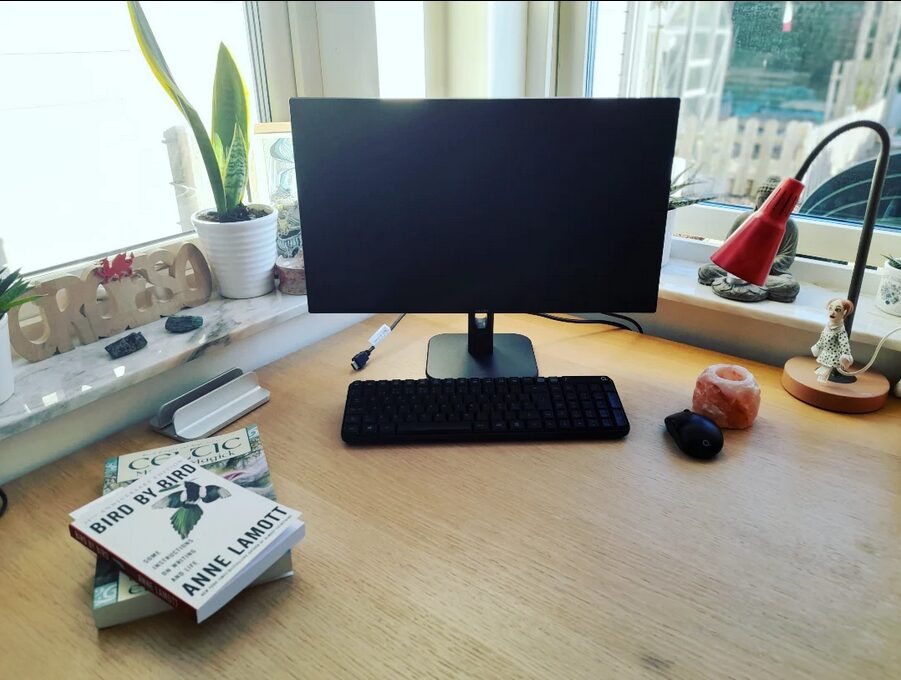“If you want to be a writer, you must do two things above all others: read a lot and write a lot. There’s no way around these two things that I’m aware of, no shortcut,” Stephen King, On Writing.
The advice to write a lot, ideally every day, is simple in theory but often challenging in practice. Numerous obstacles can make it difficult to carve out the time and muster the energy needed to put words on the page.
When it’s not the weekend, I spend evenings writing. After a full day at work, it’s often difficult to think about spending three hours sitting at my desk, hammering away on the keyboard. The sofa looks so welcoming. Oh, how easy it would be to lounge there with a good book or movie.
Here are a few things that keep me motivated to write. I’ll leave them here as a future reminder to myself when I feel my motivation waning. And perhaps they’ll be useful to someone else.
1. The Pomodoro Technique
The Pomodoro Technique is a time-management method. It involves breaking work into intervals, typically 25 minutes long, called “Pomodoros,” followed by short breaks. After completing 4 cycles, a longer break of 15-30 minutes is taken to recharge.
I don’t have a kitchen timer so I use an app on my phone, called Forest. I find it very helpful. Rarely do I actually end up taking the break at the end of the 25 minutes. Setting the timer seems to be enough to kick my motivation into gear.
2. A Dedicated Space to Write

It doesn’t have to be fancy, but it helps to return to the same space again and again to write. If I’m not sitting in a cafe, then I write at my desk, which sits by a window overlooking the garden.
3. Make a Plan
I use Google Calendar to plan my word count for each day. Large writing projects seem much more manageable when broken down into smaller parts. And there’s great satisfaction to be found from clicking “task completed” at the end of a writing session. I also use Notion to write a more in-depth plan for each week and month.
4. Stop in the Middle
I stop writing at a point where I know what I want to write next. It makes it much easier to get started the next day. There are few things worse than feeling like you’re always starting from scratch.
5. Rewards
Rewards are a wonderful thing and you don’t have to wait until the end of a writing session to reward yourself. I like to reward myself for sitting down to write by making my desk a cosy, welcoming space with candles and an endless supply of tea. Then, when the work is done, it’s time to move to a different space to reward myself with a book, movie or some chocolate.
6. Discipline & Routine
“You try to sit down at approximately the same time every day. This is how you train your unconscious to kick in for you creatively,” Anne Lamott, Bird by Bird.
No motivation is needed when you do something by routine. The clock strikes 8 and it’s time to write whether you want to or not. There is no time to hum and haw. Your diary says “8pm write” and so you do it. It takes discipline to stick to a routine, but once implemented it becomes second nature.
7. Watch or Read About Other Writers
Sometimes when I’m feeling particularly unmotivated, I’ll put on a Youtube video of an author being interviewed, or I’ll read a book on the art of writing. After 10 or 20 minutes I’m dying to get back to my own writing. It’s also great to listen to someone else speak of the endless struggle to find the right words to put down on the page. You are not alone!
8. Remember Your Why
Reminding myself of why I want to write is another reason I’m able to stick to my routine despite being tired or lacking in motivation. It’s long been a dream of mine to complete a novel, no matter how good or bad it turns out to be. That dream will remain just a dream unless I act on it. That’s what keeps me writing. Not only that, but now I’ve started, I can’t leave those poor characters in the lurch. 🙂


Leave a Reply